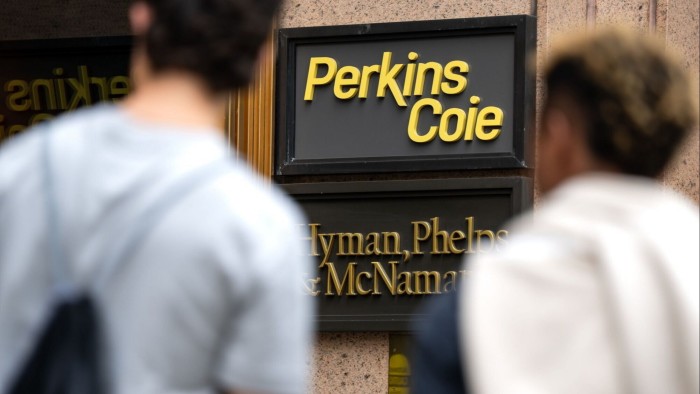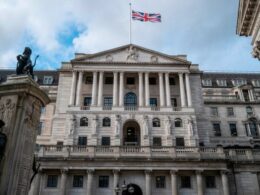Unlock the White House Watch newsletter for free
Your guide to what Trump’s second term means for Washington, business and the world
US law firms were warned about the risks of striking deals with Donald Trump when a Washington DC judge permanently blocked the president’s executive order targeting Perkins Coie, saying it violated the US constitution.
“Some clients may harbour reservations about the implications of such deals for the vigorous and zealous representation to which they are entitled from ethically responsible counsel,” wrote Judge Beryl Howell on Friday night.
Howell declared Trump’s order against Perkins “null and void”.
The published terms of those deals “appear only to forestall, rather than eliminate, the threat of being targeted”, she added, as she cited other filings which said lawyers must be able to advance their clients’ interests without fear of reprisal from the government.
The president’s order, issued in March, suspended security clearance for Perkins Coie’s employees and forced a review of its government contracts. It cited the firm’s work for Hillary Clinton in the 2016 presidential race.
“From an esteemed judge, the signal sent to the law firm community is unmistakable,” said Ryan Goodman, professor at the NYU School of Law.
“I don’t think the law firms that settled with the administration will change course based on this decision alone,” he added. “But it’s a very significant development along the way, and Judge Howell certainly wrote about the broader issues of the day affecting all these law firms not just Perkins Coie.”
Howell’s decision cited several constitutional rights that had been violated by the executive order, including the rights of Perkins Coie and its clients to free speech and due legal process.
“If the founding history of this country is any guide, those who stood up in court to vindicate constitutional rights and, by so doing, served to promote the rule of law, will be the models lauded when this period of American history is written,” the judge wrote.
Perkins Coie said in a statement that the ruling “affirms core constitutional freedoms all Americans hold dear, including free speech, due process, and the right to select counsel without the fear of retribution”.
Some clients had stopped working with the firm after the executive order, the ruling said.
The order — which some experts argue could be the first of several — may raise difficult questions for the law firms that chose to reach deals with Trump.
Senior executives at two investment firms told the FT this week that they would choose, wherever feasible, to avoid using Big Law firms that had reached deals with Trump. They cautioned that in some cases those firms had particular expertise which would make it necessary to hire them.
Another corporate general counsel told the FT that her company was looking to terminate relationships with law firms that had made deals with the Trump administration.
“I’m not sure how you can give the [settling] firms business when we don’t know what they agreed to,” she said, citing the settlement terms which have not been made public.
WilmerHale, Jenner & Block and Susman Godfrey have challenged the president’s orders and are waiting for final rulings in their cases.
Paul Weiss struck a deal with Trump in March after being the subject of an executive order that its chair Brad Karp said caused an “existential crisis”.
The White House and Paul Weiss did not immediately respond to requests for comment.
Skadden and Willkie Farr & Gallagher negotiated deals with the White House when no executive order had been issued against them, the judge said.
Kirkland & Ellis, Latham & Watkins, Simpson Thacher and A & O Shearman, which received letters from the acting chair of the Equal Employment Opportunity Commission about their diversity programmes, have also agreed deals, which typically include pledging pro bono work for causes that the administration supports.
Democratic legislators last month warned top law firms including Paul Weiss, Skadden and Kirkland & Ellis that the deals they struck may violate federal and state laws.
Microsoft has stopped using lawyers at Simpson Thacher in a case related to its purchase of video game company Activision Blizzard, and started using Jenner & Block. The New York Times first reported the move.
Freshfields US was the only top 20 law firm to sign on to a legal brief backing Perkins Coie in its fight against the order, the FT reported last month. Many of the other signatories were small and medium-sized firms including many focused on litigation.
Additional reporting by Stefania Palma
Source link









